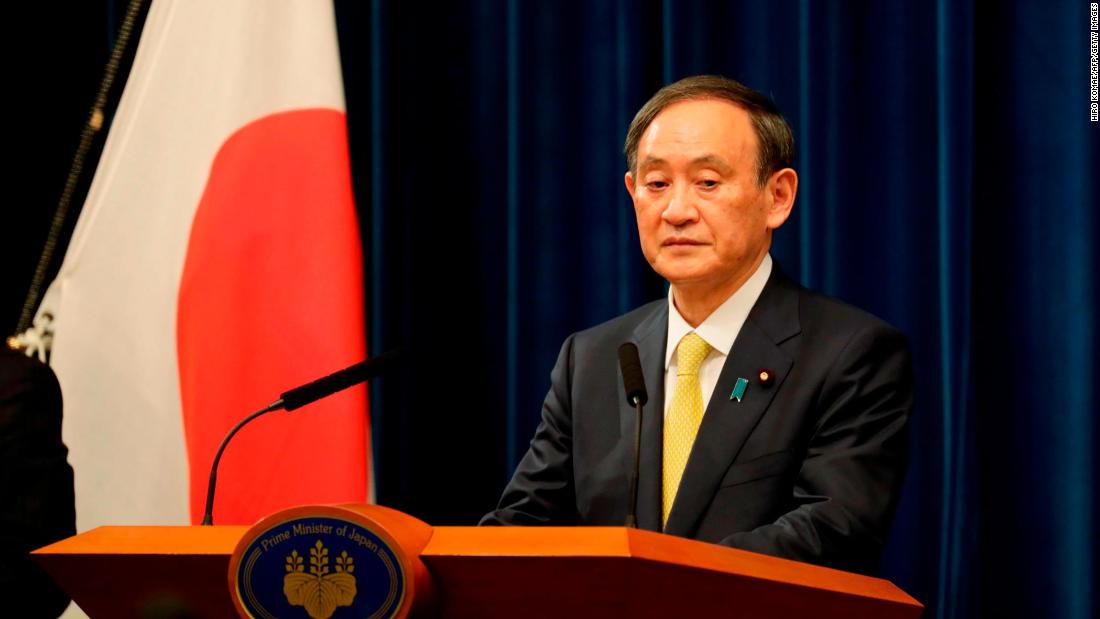
But on Monday, Suga appeared to be ignoring those guidelines by attending a meeting with seven guests, all over 70, at an upscale steak restaurant in Tokyo’s Ginza district.
Suga addressed reporters at the prime minister’s residence on Wednesday, saying, “There was enough social distance with other participants, but I deeply regret inciting public skepticism.”
“We have taken precautions, but infection rates remain at a high level with 3,000 new infections confirmed over the weekend. We are taking this very seriously. Experts pointed out that group eating carries greater risks,” Suga said.
Tokyo’s metropolitan government has advised limiting the number of people dining in restaurants to five and has urged seniors, who are particularly vulnerable, to adhere to these guidelines.
His presence at the dinner was criticized by opposition lawmakers. “He should have held back while the infection spreads. He should be a role model for the nation,” said Tetsuro Fukuyama, secretary general of Japan’s Constitutional Democratic Party.
Suga told Nippon TV he was late for dinner and planned to greet the guests and leave, but stayed for about 40 minutes.
The Go To scheme offered travelers discounts of up to 50% on transportation, hotels, restaurants, tourist attractions, and shopping, in an effort to encourage domestic travel during the pandemic recession.
“I decided to take maximum measures to contain the infection and ease the burden on the medical system so that everyone in Japan can have a quiet New Year,” Suga said at the time.
Japan, along with its neighbor South Korea, is seeing an increase in Covid-19 cases and hospitalizations as cold winter temperatures push in. Winter was always expected to trigger a spike as cold weather sends people in to poorly ventilated areas – conditions that make the coronavirus more likely to spread.
In Japan, cases have been steadily rising since the beginning of last month. Just over 600 cases were reported on November 1. Twenty days later, there were more than 2500 infections every day.
The country reported 2,988 Covid-19 cases and 51 deaths on Wednesday, bringing the nationwide total to 187,815.
The number of patients in critical condition and in intensive care remains at its highest level since the start of the pandemic at 618, 26 cases more than the day before.
Large urban centers such as the capital Tokyo report their highest number of infections and the number of hospital admissions is increasing. On Wednesday, Tokyo reported that 1,960 patients are under medical care and 69 people in severe condition are in intensive care.
Despite being one of the first countries to be affected by the virus, Japan has largely avoided the kind of strict lockdowns seen elsewhere in the world and has instead opted for intensive border checks, contact tracking and social distancing, an experiment conducted in has been broadly successful.
But the sheer amount of time that citizens live under even minor constraints – East Asia was the first region in the world to be affected by the coronavirus, with precautions taken as far back as January this year – is at risk of fatigue.
“Please don’t get used to the coronavirus,” Toshio Nakagawa, president of the Japan Medical Association, said at a briefing last month, as cases started to rise. “Don’t underestimate the coronavirus.”
Neighboring South Korea is also experiencing the biggest rise in Covid-19 cases, and health officials have warned citizens to take restrictions seriously as the country faces the possibility of facing its first potential lockdown.
